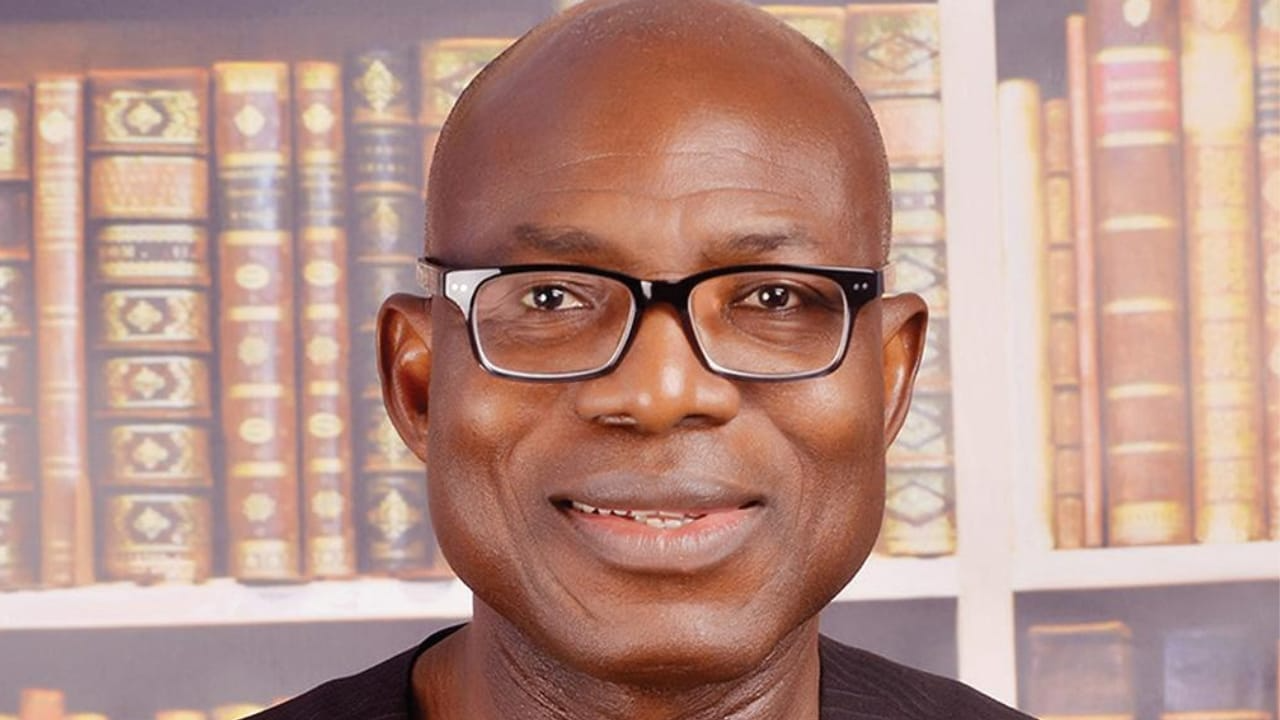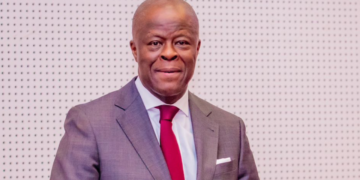Just as some similar failed projects embarked on by the federal government, the recent establishment of the Presidential Compressed Natural Gas Initiative (CNG) approved by President Bola Tinubu may follow the same pattern, LEADERSHIP Sunday findings have shown.
On Friday, the special adviser to the president on Media and Publicity, Ajuri Ngelale, disclosed that the CNG initiative seeks to ease the impact of fuel subsidy removal on the citizenry by reducing energy costs.
He also stated that the initiative, which is expected to revolutionise the transportation landscape in the country, targets over 11,500 new CNG-enabled vehicles and also includes 55,000 CNG conversion kits for existing PMS-dependent vehicles.
However, checks by this paper have shown that a combination of factors involving serious gas supply challenges like lack of investment, infrastructural deficit, lack of proper planning, misplacement of priorities, politicisation of the project as well as other prevailing harsh economic realities could eventually hinder the implementation of the initiative.
Recall that NNPC Limited, in 2020, launched an Autogas policy and promised that it would provide free conversion services to enable automobiles to switch from premium motor spirit (PMS) to autogas. Almost three years later, the government has failed to meet the target of converting one million vehicles by the end of 2021.
Dan D Kunle, an economist, energy expert, and president of DDK Business Strategy Limited, told LEADERSHIP Sunday that he has reservations about the project.

He said, “I am not optimistic about the initiative. It is not that it is wrong, but it shouldn’t be on the front burner now. Lack of investment in the oil sector is our main problem. I am surprised they are turning CNG into something extraordinary. It is a misstep and ill-advised to the government. It is not yet an item to be deliberately stimulated by the government because the infrastructure for the production, processing, and distribution of CNG involves lots of money. Where is the money to pump into the project?
“It is a good initiative from the federal government to the state level. As good as it is the modus operandi of implementing such in Nigeria always brings problems. This so-called CNG is not our problem. In March 2007, NIPCO Plc made its presentation of its CNG project to the inter-ministerial team of the federal government. In the same month, FG accorded its approval to commence the proposed project at Benin City. Dangote Cement had built a CNG station at Obajana. The issue is what investment should go into the production, processing and distribution of CNG?
NNPCL, NIPCO Partner To Deploy 35 CNG Stations
“LPG has more comparative advantages than the CNG. LPG deployment is yet to be fully achieved, then you jumped to CNG. It is a very sad development. But we look on. LPG is more portable and more versatile to use. LPG is more versatile, commonly used, and available. LPG has been with us since 1960. BP, Shell, Total, Agip, and Mobil were selling LPG in the 60s, 70s, 80s, and 90s. Each of the refineries has an LPG tank. If I’m to advise the government, I will ask them to restore the LPG tanks in our refineries.”
According to a public commentator who craved anonymity, Nigeria currently has no gas to support existing needs, as many of the country’s existing thermal power stations are being hampered by gas supply challenges.
He said, “NNLG declared force majeure from October 2022 due to gas supply bottlenecks to the existing trains 1 to 6. The force majeure is yet to be vacated till date because the gas supply issues have not been resolved or addressed. The AKK pipeline being constructed by Nigeria through Kano to Europe will need gas. The LNG train 7 plant being built by NNLNG will need gas. Now we want to embark on building extensive CNG infrastructure across the country without addressing the gas bottlenecks.
“There’s a Ministry of Petroleum Resources. There’s NNPCL. There’s the Upstream Regulatory Authority. There’s the Midstream Regulatory Authority. All these government Ministries, Departments, and Agencies parade many officials with big titles. How come no one in all these government agencies knows about the prevailing gas bottlenecks? The government should not build another gas utilization infrastructure without addressing the fundamental question of gas sourcing and supply.”
In June, PwC released a report titled, “Fuel subsidy in Nigeria- issues, challenges and the way forward,” where it said that the adoption of CNG in Nigeria presents some challenges which include the initial investment required to retrofit existing vehicles with CNG engines, the need to establish a robust distribution infrastructure for CNG, and the need for government policies and incentives to promote the use of CNG.
“While CNG presents a number of benefits compared to PMS, there are challenges to its adoption making it an unlikely alternative to petrol in the short to medium term,” it concluded.
Speaking with LEADERSHIP Sunday yesterday, oil and gas expert, Temitayo Bello, noted that government’s efforts on the conversion of vehicles to autogas may not materialise if it won’t be bankable from an investors’ point of view.
Also, Bello said Nigeria’s ambition to become a prominent global gas supplier is hindered by substantial infrastructure deficiencies in the sector, inadequate funding and the sluggish progression and optimization of its gas resources.
The Nigerian Midstream and Downstream Petroleum Regulatory Authority (NMDPRA) reported that Nigeria’s gas reserves expanded to 209.5 trillion cubic feet (tcf) in 2022, positioning it as the world’s ninth largest holder. However, the nation currently taps into only around 8 billion standard cubic feet per day (bscf).
Bello noted that Nigeria necessitates more than $1 trillion for the establishment of a new energy framework. He pointed out that while foreign investments could have bridged this gap significantly, the existing state of the Nigerian domestic gas market falls short of being an attractive prospect for foreign investors due to policy inconsistencies and an unsupportive business environment. He emphasized the imperative to revise the country’s gas utilization policy to align it with the energy transition strategy.
Another expert, Isah Aliu, highlighted that Nigeria’s emphasis on leveraging gas as a sustainable energy alternative demands substantial capital investment.
Speaking with LEADERSHIP on the initiative, the chief executive officer of the Center For The Promotion Of Private Enterprise CPPE, Dr. Muda Yusuf urged the government to work closely with stakeholders to ensure the efficient management of the process for optimum results.
“The programme needs to be supported with robust fiscal incentives around import duty concessions and tax breaks to boost private sector participation and ensure affordability. The government should subsidize the cost of establishing the CNG stations, the cost of cylinders, and the cost of the conversion kits for vehicles and generators.”
From documents cited by our correspondent, the minimum investment required for a CNG station with 2 dispensers and 4 hoses co-located in an existing or inactive station capable of dispensing 250,000 standard cubic feet daily SCFD or 500,000 SCFD of natural gas equivalent to 7,480-15,000 liters of petrol a day is approximately N300 million.
Also, a dedicated CNG station serving trucks with a daily dispensing capacity of 500,000 SCFD to 1,000,000 SCFD of natural gas equivalent to 14,280 to 28,000 liters of diesel a day requires an investment of approximately N1.4 billion.
Similarly, Dan D Kunle has disclosed that Nigeria’s current oil and gas institutional framework is filled with political patronage and so cannot attract international investors. According to him, the international oil companies are watching. He said they know that the country’s oil sector needs restructuring before they will bring their money. “As soon as the President inaugurates his cabinet and calls the IOCs to a table, and with institutional clean up, they will step in. We need to quickly turn around the governance structure to attract investment.”
Also, recently, the Nigerian National Petroleum Company (NNPC) Limited secured a $3 billion Emergency Crude Repayment Loan from the African Export-Import (AFREXIM) Bank. In a short statement disclosing the deal, the NNPC said the commitment letter, which was signed at AFREXIM Bank’s headquarters in Cairo, Egypt, will enable it to support the federal government in its ongoing fiscal and monetary policy reforms aimed at stabilizing the exchange rate market.
The announcement came at a time Nigeria’s crude oil production fell by 40,000 barrels per day (bpd). Nigeria’s crude oil output slid to 1.295 million bpd in July from 1.255 mbpd in June. For a long while, Nigeria hardly fulfilled the 1.8 mbps OPEC quota as it battled operational and security issues. In February, it only reached 1.38 mbpd, representing the highest production output since the beginning of the year.
Reacting to the development, analysts said the NNPC should ordinarily be ashamed and concerned about the drop in crude oil output, which will worsen the value of the naira, rather than turning itself to the finance ministry that should be assigning itself the mandate of supporting the naira.
According to a report, NNPC has over 55% equity in the largest producing oil and gas fields in Nigeria. The report further states that while the general perception is that NNPC is mainly a joint venture partner in producing assets that it doesn’t operate, the reality is that NNPC has 100% in several producing assets, most of them underperforming because of the company’s poor technical delivery.
Efforts to get NNPC to react to this report proved abortive as the company’s spokesman, chief corporate communication officer, NNPC Limited, Mr Garba Deen Muhammad, did not reply to text messages sent to him as at the time of filing in this report.





